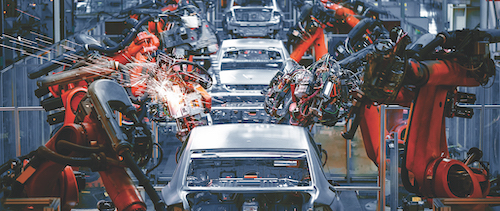Artificial Intelligence (AI) software is revolutionising the ways in which lawyers work. After a lifetime of ‘sorting
and sifting’ being a junior lawyer’s basic skillset, computer algorithms are faster and more economical. RAVN Systems, an AI consultancy and software developer, has started winning contracts from law firms to help them perform repetitive tasks in a much more efficient way. Robotics Law Journal spoke to their CEO Peter Wallqvist.
'We have a lot to thank the regulators for,' says Wallqvist. In the UK, the new regulatory regime around Alternative Business Structures and the competitive landscape of client fee pressure has led to a more encouraging approach to process efficiency models. The practice of hourly billing is under more pressure in the UK than in the US where the process efficiency argument is only working with the firms at the very top end. 'There needs to be a culture at law firms of not charging by the hour,' says Wallqvist.
Starting in 2010, RAVN was founded by ex-Autonomy engineers and without any investors. In the early years they funded the business with consultancy work while developing the software. It took 3 years to develop the Applied Cognitive Engine (ACE) application. Working at Autonomy, the founders thought they were spending too much time on the search element but not enough on the understanding element.
As part of their consultancy work they discovered that in law firms in particular there were a huge number of processes that were just about finding and highlighting important data from ever growing piles of unstructured data. Their consultancy background also meant that they could spend time working with pricing teams at law firms
and to make the software 'part of the mission at that firm'.
RAVN is riding a wave of interest in AI by professional services firms made possible by a number of recent developments. 'The convergence of AI and unstructured data is made possible by a massive increase in computing power and the inter-connectiveness of data,' says Wallqvist. 'Extranets have helped immensely because all the data is collated and ready. Cloud computing has made a lot of things easier.'
Although the recent trend among some law firms is to reduce transaction costs by employing lower paid workers in lower cost locations to conduct repetitive tasks, the use of AI would seem to be a much more efficient and scalable solution. It could also give smaller firms more muscle to conduct different kinds of work for which they would normally need an army of junior lawyers or paralegals. 'When we are in a room with a partner, the coin really drops when the conversation moves on from how much money they could save to how they could get to do work they would not otherwise get to do.'
RAVN, whose current client list includes Linklaters, BLP and Taylor Wessing, thinks the law firms are responding to client demand for different and more efficient ways of working. There are always better tools being developed. As Wallqvist says, 'Originally engineers would work with slide rules and equations but now they have calculators and computers.'


.jpg)
.jpg)
.jpg)

.jpg)
.jpg)



